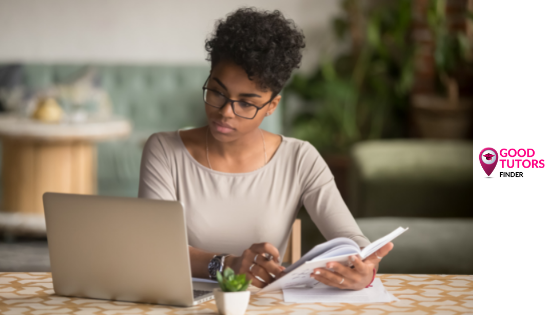The Most Effective Way to Study
Being properly organized and prepared for tests and exams can make all the difference to school performance. Effective studying starts with the right attitude—a positive outlook can shift studying from a punishment to an opportunity to learn.
There is no one-size-fits-all approach when learning how to effectively study. Studying methods should be tailored to each student. Everyone has different abilities, so it is important to determine what works for you and what doesn’t.
For some students, studying and staying motivated comes easily — others may have to work a little bit harder.
What is the Most Effective Way to Study?
Finding the best way to study is an ongoing process. It isn’t something that can be left until the night before the test. You should be constantly improving your study skills to better understand what works (and what doesn’t).
Learning how to study better helps avoid panic and frustration the next time a big test is coming up. After all, you are more likely to do well and be less stressed before a test when you have had time to properly review and practice the material!
Mastering effective study habits not only makes it easier to learn but will also help you get better grades in high school and post-secondary
How to Study Effectively
1. Get Organized
Carry a homework planner at all times. Entering homework, projects, tests and assignments as soon as they are assigned will make sure they aren’t forgotten about.
2. Pay Attention in Class
It’s important to concentrate and avoid distractions when the teacher is speaking. Practice active listening by concentrating on what’s being said and taking notes in your own words. This will help make sure you hear (and understand) what is being taught in class.
3. Steer Clear of Distractions
Distractions are everywhere—from cell phones to social media to friends. Be aware of what distracts you in class and know how to steer clear of these distractions. Avoid sitting next to friends if you know they will distract you. Turning off your cell phone will also help make sure you are paying attention to your teacher.
4. Make Sure Notes are Complete
Writing clear and complete notes in class will help you process the information you are learning. These notes will also become study notes that can be reviewed before a test. Talk to friends or the teacher if you have missed a class to ensure your notes are complete.
5. Ask Questions if You Don’t Understand
Raise your hand and ask questions if you don’t understand something. If you don’t feel comfortable asking in front of everyone, write yourself a reminder to talk to the teacher after class.
6. Make a Study Schedule / Plan
When making a study schedule, look at your planner and think about what needs to be accomplished. Think about the types of questions that will be on the test and the topics that will be covered so you know what you should focus on. Set specific goals for each study session, like how many topics you will cover by the end of the session.
7. Review Notes from Class Every Evening
After school, review and expand on the notes from class. Reviewing notes helps move material learned from short-term memory into long-term memory, which will help next time you have a big test.
8. Talk to Teachers
Teachers are there to help you do your best. Talk to your teacher and ask for clarification or extra help if you need it before your test. Taking the initiative to ask for help goes a long way with teachers!
9. Designate a Study Area
The best study spot is one that is quiet, well-lit, and in a low-traffic area. Make sure there is a clear workspace to study and write on. Everyone’s needs are different, so it is important you find a spot that works for you.
10. Study in Short Bursts
For every 30 minutes you study, take a short 10-15 minute break to recharge. Short study sessions are more effective and help you make the most of your study time. Find out more about taking a study break that works.
11. Simplify Study Notes
Make studying less overwhelming by condensing notes from class. Underline or highlight key words. Create visual aids like charts, story webs, mind maps, or outlines to organize and simplify information and help you remember better.
12. Study with a Group
Working with classmates encourages an interactive environment to keep you engaged. This gives you a chance to test your knowledge with others, quiz each other on the content, and help boost each other’s confidence.
STUDY SMART, NOT HARD
Knowing how to study effectively is a skill that will benefit you for life. Developing effective study skills requires lots of time and patience. If you follow these tips you’ll be on your way to discovering which type of studying works best for you—so you can knock your next test out of the park!
If you like to provide your child with a trained tutor after school or during the holidays to help with structure and organization, we have just what you need. At Good Tutors Finder, we only have hand-picked tutors who are well versed in these and other strategies and can apply them, whether in IB Diploma, IGCSE, AP, or lower grades. Mathematics, Science, Physics, German, French, English, and more, no matter which subject is complex, our tutors can help.
Our tutors are available everywhere in Switzerland, including Zurich, Basel, Bern, Zug, Geneva, Lausanne, and all other cities.
Find out more and book your tutor today!




